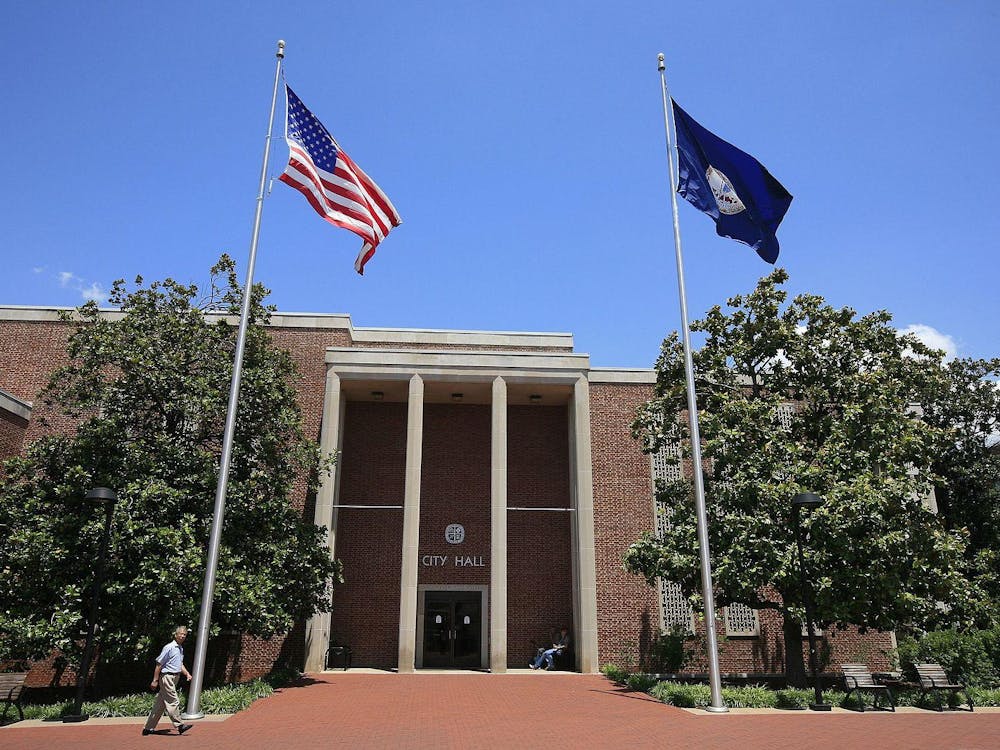IN A LETTER sent Monday to the United Nations Security Council, U.S. Ambassador John Negroponte brought up the possibility of expanding the strikes against Afghanistan to other countries. "We may find that our self-defense requires further actions with respect to other organizations and other states," he asserts.
Many people have expressed concern over this, including U.N. Secretary-General Kofi Annan, who said he was "disturbed" by the statement. While we do risk alienating some of our allies, the United States must take a firm stand and extend the fight to any countries that sponsor or harbor terrorists.
Some claim that the United States has no business interfering with the domestic affairs of a country. In fact, many even accuse America itself of terrorism, through their sanctions and bombings of countries like Iraq, Iran and Libya. Salon.com writer Bruce Shapiro stresses "how deeply American embroilment in dirty business - coups, assassinations, military regimes - contributed to hatred of the U.S." ("The hyping of domestic terrorism," Salon.com, June 12, 2000).
These allegations are misguided at best. The reactions of Americans are that of an international bully at worst. In contrast, Libya's government has been actively involved with terrorism over the past two decades. Seven months ago, Libyan President Moammar Gadhafi admitted to aides that his country ordered the bombing of a disco in Berlin in 1984. Gadhafi's brother-in-law was convicted of bombing a French airliner in 1989, killing 171 people, including six Americans. A chief Libyan intelligence officer was convicted by an international court for the bombing of Pan Am Flight 103. You don't get any closer to state-sponsored terrorism than this.
But what did Gadhafi have to say after the attacks? "Everyone should put human considerations above political differences and stances and offer aid to the victims of this gruesome act" ("Mideast Leaders Condemn, Citizens Cheer Attacks," Reuters, Sept. 12). Be offended by these remarks. Libya's past actions show that they have very little, if any, regard for "human considerations," especially when it comes to targeting civilians. Libya, in condemning the attacks, is hiding its past crimes behind a rhetoric of sympathy.
But Libya isn't alone. According to the State Department, North Korea, Cuba, Iran, Iraq, Sudan and Syria all are guilty of state-sponsored terrorism. We must take these threats seriously, and not resort to feeble compromises, such as using economic sanctions as a tool against terrorist nations.
Sanctions on these countries do not work. They only hurt innocent civilians and fuel hatred of the United States among the general population of these countries. The only course of action to take is to use the threat of or even actual military force to eliminate terrorist groups.
We're not talking about random attacks on nations that harbor terrorists. The United States and the U.N. need to go to these nations' leaders and force them to stand by their words. If these governments truly condemn terrorism, then they will help the United States in destroying training camps in all of their countries. If not, then we need to go in there and destroy these threats ourselves.
|
Some will claim that these terrorist groups, while dangerous, don't pose a direct threat to the United States. Shapiro, who blamed America for perpetuating the hatred of itself, asserted last June that the American government was deliberately exaggerating the threat of terrorism. Why would the government do this? In order to implement greater security measures - measures that may have stopped the Sept. 11 attack. Right now, underreacting is more dangerous than overreacting.
One of the greatest risks we face is losing the support of our allies, and this should be the primary concern in our war against terrorism. However, this does not justify inaction. We should proceed with prudence, making sure to share our intelligence with other countries and acknowledge their concerns.
Compromising with terrorists and those who harbor them is not a prudent course of action. After Pan Am Flight 103, the Libyan government didn't hand over the terrorists for 11 years, instead protracting a debate on international law. When confronted about state-sponsored terrorism, these countries hide behind the same laws that they so obviously despise. The time for negotiation is long gone. What we need now is an ultimatum: If you don't help us get rid of terrorists, we will treat you like one.
We cannot pretend that terrorists are a civilized group or that they will respond to any diplomatic action we might take. The language of terrorists is violence, and it is far past time that we responded to all of them in a form they understand and treat them as a threat to America's security and way of life.
(Brian Cook is a Cavalier Daily associate editor. He can be reached at bcook@cavalierdaily.com.)






